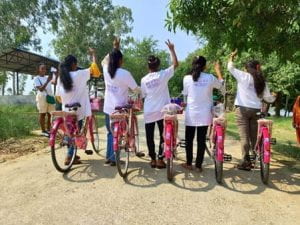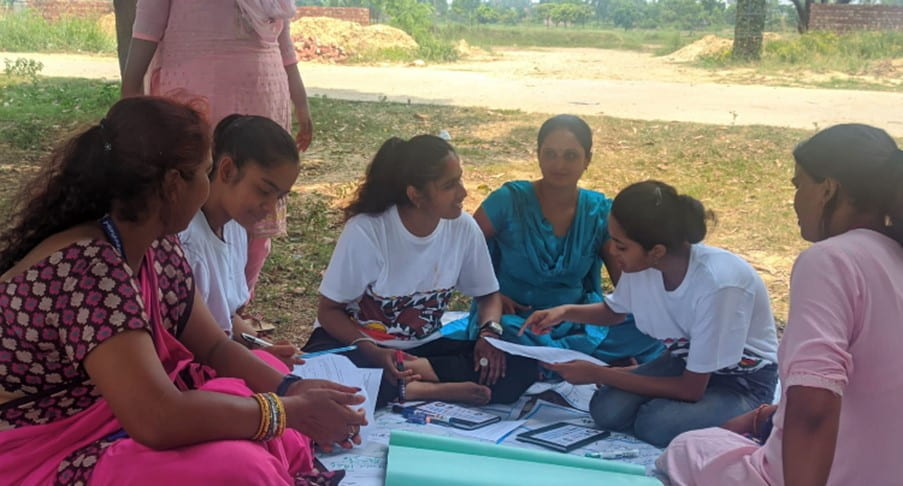Latest posts
- MAP International Online Conference 2025: Session Summaries Report 24 July 2025
- MAP 2025 Conference Highlights: Recordings and Slides 23 July 2025
- Journal article: Reimagining Peace Education in Nepal: Arts-Based, Learner-Centric Pedagogy for Social Justice and Equity 13 July 2025
- Curricula: Mithila art-focused local curriculum in Nepal 2 July 2025
- MAP International Online Conference 2025 1 June 2025
- Policy brief: Gira Ingoma book and policy brief: “The Culture We Want, for the Woman We Want” 28 November 2024
- Manuals and toolkits: GENPEACE Children’s Participation Module in the Development Process 13 November 2024
- Journal article: [Working Paper] Gira Ingoma – One Drum per Girl: The culture we want for the woman we want 30 October 2024
- Curricula: Beyond Tradition: Psychosocial Model 30 October 2024
- Curricula: Beyond Tradition Module: Revitalizing Lenong as a Model for Teaching Betawi Arts 30 October 2024
- Curricula: Beyond Tradition: Lenong Revitalisation as a Model for Teaching Betawi Cultural Arts 30 October 2024
- Beyond Tradition Lenong Performance “RAWR…! Kite Kagak Takut” 30 October 2024
Building our project team as an International Steering Group: Picturing the Past, Present, and Future in the imaginations, dreams and journeys taken by young women in Nepal and Rwanda
17th May 2023
Author
MARLON LEE MONCRIEFFE, Principal Investigator, UK.
NUB RAJ BHANDARI, Co-Investigator, Nepal.
CHASTE UWIHOEYE, Co-Investigator, Rwanda.
Introduction
Our MAP team first started working together in Nepal through 2018-19 Changing The Story funded project “Examining Interpretations of Civil National Values made by Young People in Post-Conflict Settings (Kenya and Nepal)”. As well as this, we have worked together on Consolidation, learning and evaluation in Kenya and Rwanda: A critical review of Changing the Story projects in Eastern Africa (Decolonising Curriculum Knowledge). The successes of these projects have enabled a bonding in our understanding and learning from each other about the international professional and social contexts from which we derive and the valuable contributions that we each bring to the project as a whole. This article provides an overview of the developments and progress of our project team, which has transformed into an international steering group.
Building on Phase 1 MAP projects
Picturing the past, present, and future in the imaginations, dreams, and journeys taken by young women in Nepal and Rwanda extends the MAP vision from the Phase 1 contexts of Nepal and Rwanda. Both have sought to provide training for youth, educators, and cultural artists; to support the design and delivery of Participatory Arts as a part of the national curriculum. Our project seeks to build upon existing work in Nepal and Rwanda, focusing on the use and application of Mithila Art and Imigogo Art. Our aim is to show how these art methods can be applied as intergenerational dialogic tools of communication for informing social and educational policies in Nepal and Rwanda and challenging gender discrimination across both societies more widely. Of all the MAP medium grants projects, our project is unique through the cross-cultural exploration between two countries and the provision of comparative research findings. We are using and applying the same theoretical framework across the two projects.
Project overviews and meetings
Our project strategy was completed in January 2023. This was shared at our first meeting as a team on February 1, 2023. In essence, the project strategy is a working document that provides milestones to measure progress and includes an overview of fieldwork strategies and logistics for each country. The project overview is a working document that is continuously updated during our agenda-led meetings. All fortnightly meetings prior to the fieldwork in May and June occur online. However, a valuable face-to-face meeting with the P-I and Rwanda Co-I happened in Rwanda in February 2023, with the Nepal team brought online. This meeting included our introduction to the valuable Steering Group members. Also joining us was a partner, the Rwandan Cycling Federation (FERWACY), who will support cycling journeys for women during our planned Rwanda fieldwork in May 2023.

From R to L: Emmanuel Kigundu, Dr Marlon Moncrieffe, Dr Chase Uwihoreye, and Mrs Liliane Kayirebwa (FERWACY). Rwanda, February 2023.
International Steering Group
The establishment of our International Steering Group has given young people from Nepal and Rwanda the opportunity to engage in cross-cultural dialogue. This has included shaping the design of the project overview and in knowledge transfer of cultural proverbs from each national context, allowing all to see the synergies of intergenerational experiences across both contexts. Our first meeting took place on 29th March 2023.

The recruitment of Nepalese members to our Steering Group was completed in March 2023. A 23-year-old, third-year student studying a Bachelor of Business Administration (BBA) at Tribhuvan University, with a deep love for Mithila art and culture and an interest in researching the beauty and richness of Mithila art, Ms Liza Kumari Jha was recruited as a young researcher. Similarly, Prity Karna learnt to paint Mithila art at a very young age and has a dream to be a renowned Mithila artist. Prity is confident in bringing contemporary perspectives to Mithila Arts, aiming to challenge the prevailing norms against women and girls through the arts.
Project developments in Nepal
In the last week of April 2023, a steering group member and young Mithila artist, Ms. Prity Karna, and Nub Raj Bhandari (Co I – Nepal) participated in an interactive orientation event with young women. It was an informal meeting with the young women (who will later participate in the fieldwork), and our project’s Mithila artist lead in creating a synergy, contributing to the intergenerational aspects of the project between youth researchers and Mithila artists and researchers.
Project developments in Rwanda
Two Youth Action Board members and six teachers attended informal workshops to test approaches with art methods tools for the baseline assessment and monitoring of the project. The activities included working together using a variety of ‘Tracking Tools’. For example, the creation of ‘Vision Murals’. This is used by the participants to think about the vision they wish to achieve in relation to an issue they want to address. The problems in the community as in “the change they want to see”. Next, the participants were gathered in a circle of connected flipcharts and encouraged with engagement tasks to draw the change they envisaged through their choice of artistic approaches.
They participated in sharing their drawings, collages, and different murals towards the change they wanted to see in their communities. Some of the drawings included trees to represent family reunions. Whilst other drawings included arms that represent peace, unity and prosperity and stars that represent the light of life. Poems were also written to represent the voice of the voiceless and isolated younger people in the community.

Picturing the Past, Present & Future…
Enhancing dialogue between young people and policy through photographic documentation of bicycle journeys to improve the wellbeing of women and girls.

